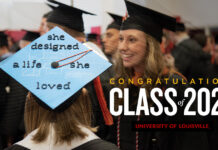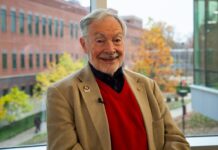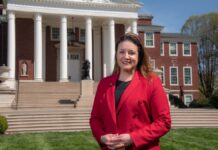LOUISVILLE, Ky. – Stem cells and other regenerative cells that have been isolated from a patient’s own fat tissue are being tested in the treatment of peripheral arterial disease, heart disease, arthritis, diabetes, neurological disorders, erectile dysfunction and, most recently, Crohn’s Disease. Stuart Williams, Ph.D., director of the Bioficial Heart Program at the University of Louisville School of Medicine, pioneered the use of these cells and discussed advances in his research in a keynote address to open The 2nd Saudi International Biotechnology Conference this morning in Riyadh, Saudi Arabia.
Fat-derived cells also are being tested at UofL for the ability to reduce the need for anti-rejection drugs in patients receiving transplanted organs, and pre-clinical studies are evaluating the use of the cells to improve the outcome of islet cell transplantation. UofL physicians are already performing pancreatic islet transplantation for the treatment of pancreatitis.
In today’s address, Williams also discussed research into the use of additive manufacturing (3D printing) for the manufacture of medical devices and tissue implants. The program has made strides toward its 10-year goal of bioprinting a human heart from a patient’s own cells.
The conference, held in the King Abdulaziz City for Science and Technology, is designed to build bridges of communication between scientists and specialists in Saudi Arabia and research and technical pioneers from institutions around the world.
“The Saudi Arabian government has made a major commitment to research, development and translation of regenerative medicine,” Williams said. “We have begun discussions regarding how investigators at UofL and in Saudi Arabia can create a strategic alliance to foster joint research and education in regenerative medicine.”
Williams’ research is supported in part by the Jewish Heritage Fund for Excellence and conducted at the Cardiovascular Innovation Institute, a collaboration between the University of Louisville and Jewish Hospital & St. Mary’s Health Care.
###
























